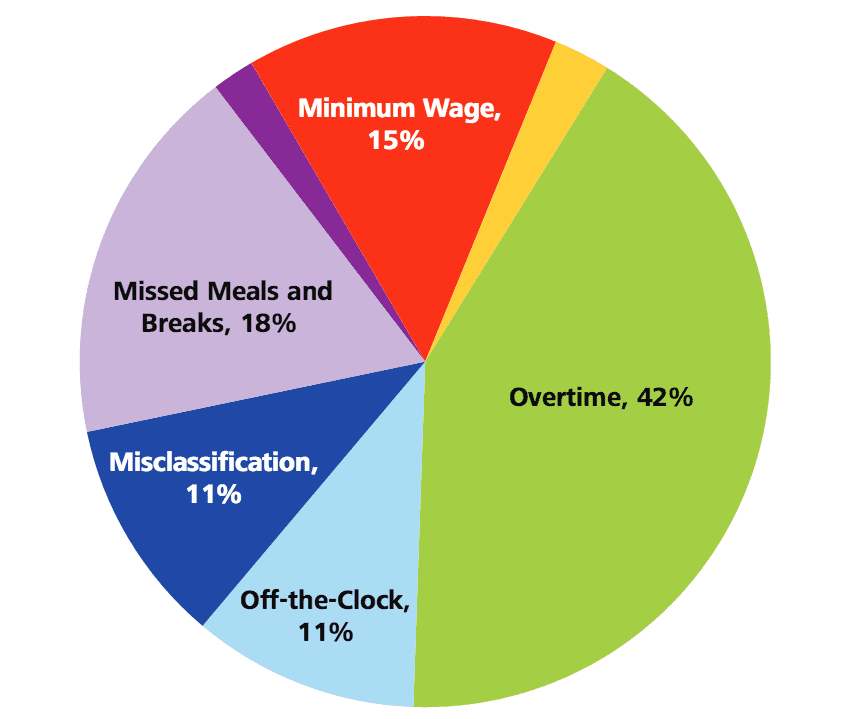Making a payroll mistake could mean getting reported to the Department of Labor. It could mean that you’ll get sued, fined, ordered to pay back wages, and forever fear the DOL. It’ll be an ugly mess over an honest mistake, right?
Well, not necessarily. If employers honestly try to follow the rules and don’t deliberately try to reduce overtime, the DOL may be lenient with a payroll mistake. At least that’s how it has appeared in a recent case.
Employer Wins Wage and Hour Lawsuit
Sandra Ellis sued her employer, J.R.’s Country Stores, Inc., claiming that the company made a deduction to her salaried paycheck which revoked her salaried status (hence making her eligible for overtime wages). Sandra normally received a paycheck in the amount of $625 but, one week, after working fewer hours than her set schedule required, she received $593.80. She immediately resigned and demanded $42,000 in back wages. She contended that deductions cannot be made to salaried employees just because they work under their set schedule. This is true. Salaried employees make a set amount regardless of the hours they put in. Sandra, however, did not win the case. Here’s why:
The courts saw that County Stores made every effort to follow the FLSA. The Country Stores employee handbook mentioned the FLSA rules on salaried employees. It stated that they intended to follow those rules and reimburse for any accidental deductions. This was one bit of “evidence” that Country Stores used to prove its case. What happened with Sandra was a payroll mistake and not a deliberate deduction. Mistakes happen and, since the company could prove that they understood and followed the laws, the 10th circuit applied the FLSA’s “window of correction” regulation and denied the employee’s claim.
Window of Correction
The window of correction gives employers a small window to correct FLSA errors so that employees don’t lose their salaried status. Losing salaried status can result in employers owing employees for unpaid overtime wages. The window of correction may apply when an employer normally makes every attempt to follow the FLSA but makes a payroll mistake anyway, resulting in a deduction from a salaried employee’s paycheck. In order to qualify for the window of correction, employers must reimburse the employee as soon as they find out about the mistake.
In the case stated above, Country Stores immediately fixed their mistake when Sandra notified them and paid her more than she was due. The DOL applied the window of correction in this case. Country Stores was not found guilty of any wage and hour violations.
Be Careful With Overtime Violations
Employers do sometimes win wage and hour lawsuits. Most of the time, though, the courts rule in favor of the employee. Employers need to be familiar with the FLSA or hire someone who is so they can stay compliant.
The vast majority of wage and hour cases are related to overtime (as shown in the image above). This is likely because overtime can get botched up in so many ways. Take a look at our infographic on avoiding overtime violations to learn more.






3 Responses
If I recently notice in our historical hourly rates, that my hourly rate was reduce after 8 month and then raised back up that same month, then lowered again that same month, and then the following year after my hourly rate raise was given, my hourly rate ended lower from the previous year when it should of been higher, and if this happened several years here and there, can I get my employer go back to when the mistake of the hourly rate was changed in error and have them fix my hourly rate to what it should be at with all the hourly raises I received through the years, since my deadline of getting back the money I am owed due to my hourly wages was lowered without permission or notification that it was being done and according to them they don’t know what happened nor can they confirm that’s how I got paid when there is access to all my paychecks.
There is a chance that your employer may have to give you back pay for all hours that weren’t compensated correctly. To get this sorted out, you have a few options: report to the Department of Labor for wage violations or you may contact an employment lawyer to view your options.